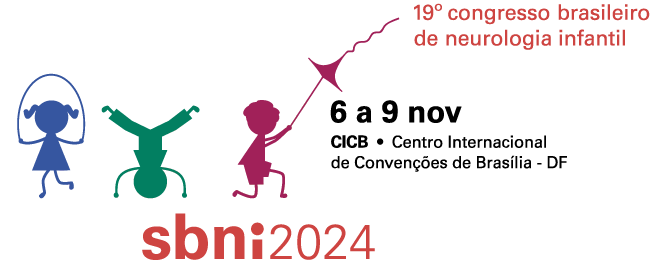Dados do Trabalho
Título
DEFICIT HYPERACTIVITY DISORDER IN CHILDHOOD: DIAGNOSTIC AND THERAPEUTIC ADVANCES
Introdução
Attention Deficit Hyperactivity Disorder (ADHD) affects 6% of children worldwide, being characterized by inattention and impulsivity, which compromises academic performance and social relationships. Methylphenidate is the most common treatment, despite side effects. The absence of specific biomarkers and the persistence of symptoms into adulthood highlight the need for new diagnostic and therapeutic approaches.
Objetivo
Review new pediatric diagnostic and therapeutic technologies related to ADHD, presenting updates in the medical approach.
Método
A literature review was carried out in the PubMed and Scielo databases, using the descriptors “ADHD”, “diagnosis”, “treatment” and “child”. 156 articles were found, of which after filtering for Systematic Review and Meta-Analysis articles in English and Portuguese between 2019 and 2024, 5 articles were chosen.
Resultados
In traditional diagnosis and treatment, pediatric neurologists rely on disease classification manuals, and combined treatment showed significant improvement in symptoms in 96.9% of cases. Short-acting methylphenidate is the most prescribed medication, despite frequent side effects such as headache. Its effectiveness and safety are uncertain, with low certainty evidence about its benefits and harms. Although it may improve symptoms and general behavior, it is associated with non-serious adverse events such as drowsiness and decreased appetite. Alternative treatments such as the plants Melissa officinalis, Bacopa monnieri, Matricaria chamomilla and Valeriana officinalis have shown positive results in treating ADHD symptoms, although the evidence is limited and they are needed to confirm their safety. Physical activity, especially aerobic exercise, has been shown to improve executive function in children and adolescents with ADHD, with 20-minute sessions providing benefits.
Conclusão
The results of the review indicate that although traditional methylphenidate treatment is effective, it has significant side effects. Alternative treatments, such as herbal medicine and physical activity, have shown promise but need further study. Combining traditional and innovative approaches can improve the management of ADHD in pediatric patients.
Referências
NUNES, M. E. N.; ZUANETTI, P. A.; HAMAD, A. P. A. Attitudes and practices in the management of attention deficit hyperactivity disorder among Brazilian pediatric neurologists who responded to a national survey: a cross-sectional study. Sao Paulo Medical Journal = Revista Paulista De Medicina, v. 141, n. 4, p. e2021966, 2022.
STOREBØ, O. J. et al. Methylphenidate for children and adolescents with attention deficit hyperactivity disorder (ADHD). The Cochrane Database of Systematic Reviews, v. 3, n. 3, p. CD009885, 27 mar. 2023.
DUTTA, T. et al. Phytotherapy for Attention Deficit Hyperactivity Disorder (ADHD): A Systematic Review and Meta-analysis. Frontiers in Pharmacology, v. 13, 3 maio 2022.
MONTALVA-VALENZUELA, F.; ANDRADES-RAMÍREZ, O.; CASTILLO-PAREDES, A. Effects of Physical Activity, Exercise and Sport on Executive Function in Young People with Attention Deficit Hyperactivity Disorder: A Systematic Review. European Journal of Investigation in Health, Psychology and Education, v. 12, n. 1, p. 61–76, 1 jan. 2022.
ROCCO, I. et al. Time of onset and/or diagnosis of ADHD in European children: a systematic review. BMC Psychiatry, v. 21, n. 1, 16 nov. 2021.
Palavras Chave
Attention Deficit Disorder with Hyperactivity; Treatment; Diagnosis
Área
Transtornos neuropsiquiátricos e distúrbios de aprendizagem
Autores
NATÁLIA ELLEN DOS SANTOS CAVALCANTE, AKEMI KAI HELDWEIN, BÁRBARA EDUARDA LUCAS MATOS, MARIO AUGUSTO REGO DE MACEDO , FRANCISCO JOSÉ CARVALHO , VANESSA MENEZES ROSCETE , LARISSA OLIVEIRA MACÊDO , ARTHUR MARQUES ROSA , MARIA DA CONCEIÇÃO DA SILVA SOUSA MELO
